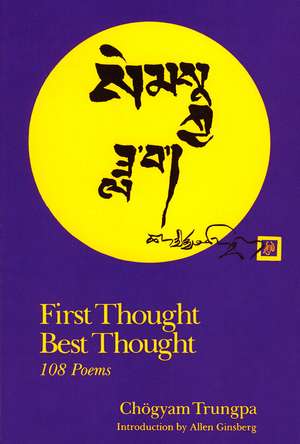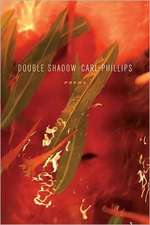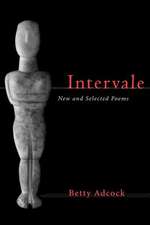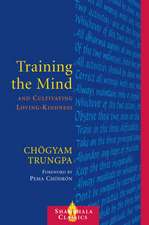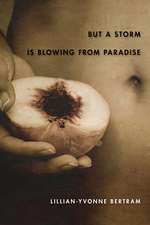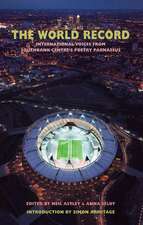First Thought Best Thought: 108 Poems
Autor Chogyam Trungpa Editat de David I. Rome Prefață de David I. Romeen Limba Engleză Paperback – 30 apr 2001
Preț: 141.93 lei
Nou
Puncte Express: 213
Preț estimativ în valută:
27.16€ • 28.51$ • 22.54£
27.16€ • 28.51$ • 22.54£
Carte disponibilă
Livrare economică 21 martie-04 aprilie
Preluare comenzi: 021 569.72.76
Specificații
ISBN-13: 9781570626104
ISBN-10: 1570626103
Pagini: 224
Dimensiuni: 158 x 231 x 14 mm
Greutate: 0.35 kg
Editura: Shambhala Publications Inc
ISBN-10: 1570626103
Pagini: 224
Dimensiuni: 158 x 231 x 14 mm
Greutate: 0.35 kg
Editura: Shambhala Publications Inc
Notă biografică
Chögyam Trungpa (1940ߝ1987)—meditation master, teacher, and artist—founded Naropa University in Boulder, Colorado, the first Buddhist-inspired university in North America; the Shambhala Training program; and an international association of meditation centers known as Shambhala International. He is the author of numerous books including Shambhala: The Sacred Path of the Warrior, Cutting Through Spiritual Materialism, and The Myth of Freedom.
